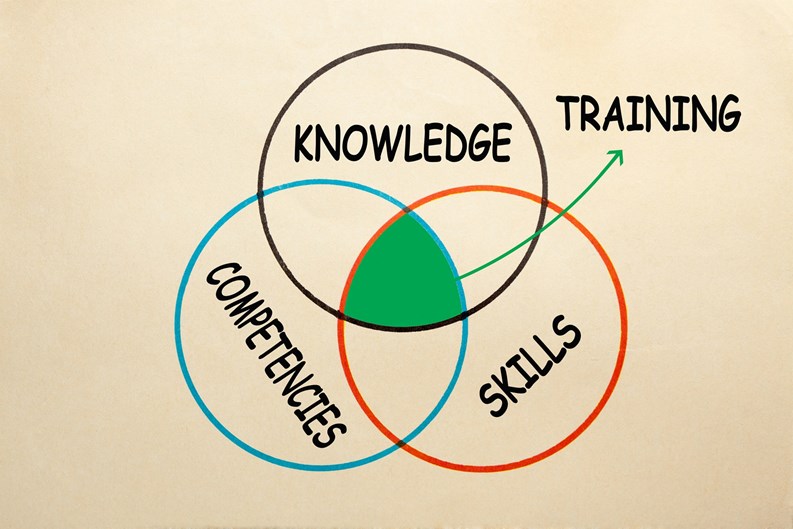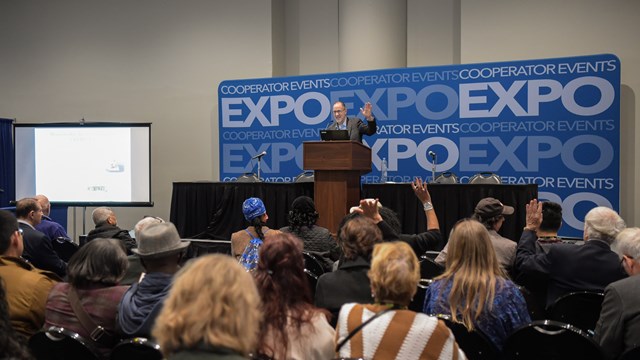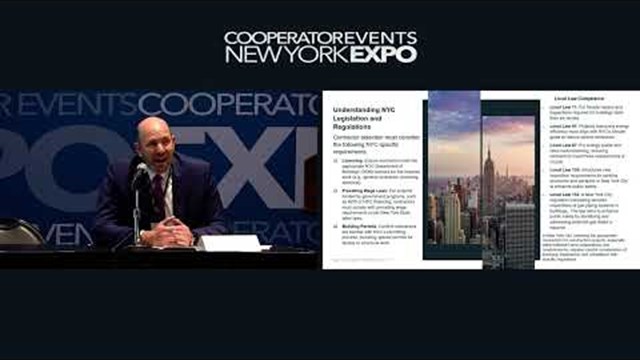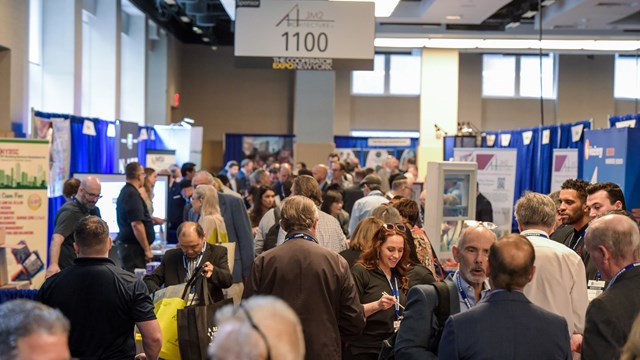While practical experience may be the best source of education for property managers, a little refresher in the classroom from time to time never hurts. Requirements for continuing property manager education vary from state to state, and even from locality to locality. Some require licensing for certain job functions (like sales); some do not. And while client communities may not be paying attention to what professional designations their management has, the organizations that bestow those designations often mandate continuing education courses to maintain one’s designation.
Designations, Requirements, & Company Involvement
“There are many certification courses out there,” says Jared Zelin, a manager director at AKAM Management, with offices in New York and Florida. “They include but are not limited to, Certified Property Manager (CPM), Registered Apartment Manager (RAM), Real Estate Salesperson License, Licensed Community Association Manager (LCAM), and Certified Facility Manager (CFM). Many professional organizations require their members to take continuing education courses of anywhere from 15 to 40 hours every two to three years, depending on the member’s specific designation. With regards to the CFM designation, the continuing education courses are extremely relevant to what managers deal with: building systems and updating one’s knowledge does help with day-to-day property management.”
“I am a firm believer that a manager should always be continuing to learn something new and to update their skill sets,” says Sean Jordan, director of property management for FirstService Residential in Canton, Massachusetts. “We conduct in-house trainings and meetings to help our teams stay on top of items that are of importance for managers. Our industry changes pretty rapidly at times based upon not only trends, but also outside influences such as government mandates or lending requirements. For example, in Massachusetts with the clean energy push, firms need to be aware of reporting requirements for the city of Boston and Cambridge on utility consumption as well as plans to reduce carbon footprints. Additionally, in Massachusetts there is no requirement that you be certified as a property manager to conduct property management. But as an industry, we do have a couple of firms that we utilize as the standard, such as CAI and IREM.”
“With respect to community association managers (CAMs),” says Kris Kasten, an attorney and founding member of law firm Bartzen Rosenlund Kasten, located in Chicago. “Illinois has imposed continuing education requirements on CAMs through the Community Association Manager Licensing and Disciplinary Act, or ‘CAM Act’. The CAM Act is supplemented by State administrative regulations. The current administrative regulations are outdated, but the Illinois Department of Financial and Professional Regulation (IDFPR) is now working on updating the regulations.”
Expertise Leads to Better Performance
Staying at the top of one’s game is, of course, important in all industries. It’s of particular importance in real estate management, as each day is likely to present an array of varied, often unexpected challenges that require current, up-to-date management skills.
“In property management,” says Zelin, “you need to be well versed in all areas of real estate. While a lot of the job is a hands-on experience, additional training helps managers become more knowledgeable overall, while navigating an industry that continues to evolve. We strive to build ideal management teams for our clients. We do this by combining the skill sets of multiple professionals with educational background that balances hands-on experience, industry knowledge, and education, as well as vendor resources and relationships.”
“In our industry,” Jordan adds, “it’s important to have a professional certification. We deal with people’s homes—it’s their most important asset, so there’s a huge trust factor involved. Knowing that the person or firm managing your community is qualified and encourages training and certification speaks volumes of the people you are working with. Investing in knowledge and practices, which we then apply to our clients and their homes, can help us give the best advice possible to our board of trustees and residents.”
“Understanding lending requirements for homeownership,” Jordan continues, “is another area where managers should have up-to-date knowledge. It helps management and the board to stay on top of items that may affect someone’s ability to purchase in their community, as well as for current homeowners to refinance their home. Management should keep reserve studies in place and updated accordingly.”
“Although there are differing views about the current continuing education requirements in Illinois,” says Kasten, “having those requirements is beneficial to the industry overall because it ensures that CAMs hear about new developments and have refreshers on best practices. The differing views include, but are not limited to, the appropriate number of hours required, the quality of educational opportunities available, the types of educational opportunities that qualify, and the effectiveness of educational requirements.”
What to Look For?
According to Zelin, “The key elements to look for when considering management —existing or new—are the reputation and resources of the firm, its structure, and the general experience of the proposed property management team. While certifications ensure an overall baseline in property management, it’s important not to underestimate the importance of company-facilitated training and development. For example, we actively host trainings for our management professionals, on average about twice per month. The goal is for all team members to get refreshed on the basics, and to introduce and updates on new legislation, processes, products, and other issues. We also hold open forums that allow our management team members an opportunity to opine on and openly discuss the best ways to enhance both the properties they serve, and the services available. They learn from other industry professionals as well as their peers, as the forums will usually have an invited guest to present on a topic or their areas of expertise.”
When looking for new management, Jordan advises that “at a minimum, a CMCA or actively pursuing one is important. From there, you can progress up to an AMS and PCAM for a manager. There are courses and tests that are taken to receive and maintain those designations, similar to other professional industries. CAI requires continuing education hours and courses every two years to maintain a certification for CMCA, and every three years for AMS and PCAM. All three must adhere to the professional code of conduct and ethics.”
“Depending on the specific course,” says Zelin, “the time commitment in getting certified varies from 40-hour courses up to a total of three years of coursework to become a CPM. Most of the courses are not free. Based on an individual firm’s offerings, sometimes the employer will pay, but in many cases it’s up to the individual manager to cover their own costs.”
“There are continuing education events and classes with the Community Associations Institute (CAI) and the Institute of Real Estate Management (IREM),” says Jordan, “but the nice thing now is that as professionals we have multiple options. You can attend on-demand classes on specific topics or attend a live session as a webinar where you can interact with the presenter. Classes continue to be offered in both in person and remote sessions as well. It’s usually a few hours for a topic to a few days for a course.”
Board members should look for specific types of coursework when evaluating a manager, whether your existing manager or a new one. Courses and/or certifications focusing on budget planning and preventative maintenance should be highly sought after, especially in times of economic downturn. Another area of expertise that is very helpful is community governance, which focuses on things like how to conduct a board meeting effectively and utilize committees to help the community and managers tackle multiple items through the year as a team.
Overall, continuing education is a positive thing for both managers and the boards they work with. Education should be a lifelong pursuit. The knowledge gained from continuing education benefits everyone involved, manager, management company, board members, and residents of the community.
AJ Sidransky is a staff writer/reporter for CooperatorNews, and a published novelist. He can be reached at alan@yrinc.com.










Leave a Comment